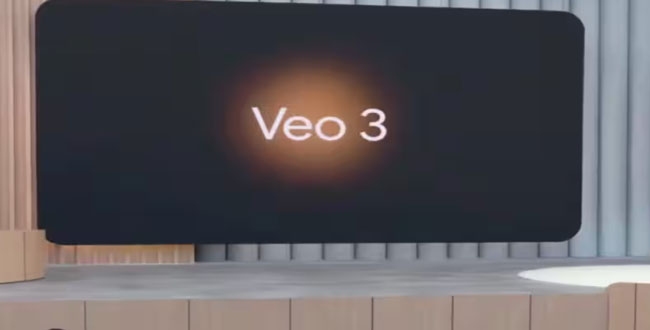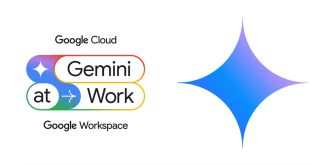Google’s Veo 3 AI video generator is transforming content creation with ultra-realistic visuals and audio, but its rapid adoption raises concerns over misinformation and a flood of low-quality “AI slop.”
In May 2025, Google unveiled Veo 3, its most advanced AI video generator to date, at the Google I/O conference. Promising to democratize filmmaking and redefine creative boundaries, Veo 3 can generate lifelike, 8-second video clips complete with synchronized audio, dialogue, and even background soundscapes—all from a simple text prompt. But as this technology sweeps across the internet, it’s not just the promise of creative empowerment that’s making headlines. A surge of low-effort, algorithmically generated content—dubbed “AI slop”—is sparking existential debates about the future of art, authenticity, and digital trust.
Veo 3: Setting a New Standard in AI Video Generation
Google’s Veo 3 stands apart from earlier AI video tools with its remarkable realism and technical sophistication. Powered by the Gemini Ultra foundation model, Veo 3 interprets complex prompts, simulates real-world physics, and produces videos with natural lighting, accurate lip-syncing, and nuanced facial expressions. The platform’s audio rendering engine synthesizes voices, music, and ambient sounds, while its temporal consistency algorithms ensure smooth transitions and continuity across frames.
Key Features:
- Ultra-Realistic 4K Video: Generates cinematic-quality visuals nearly indistinguishable from real footage.
- Integrated Audio: Adds dialogue, music, and environmental sounds for immersive storytelling.
- Consistent Characters: Maintains character continuity across scenes and enables advanced camera controls.
- Advanced Prompt Handling: Understands tone, mood, and cultural context for tailored outputs.
Viral Impact and Creative Applications
Since its debut, Veo 3 has taken social media by storm. Creators are leveraging the tool for everything from stand-up comedy routines and historical reenactments to music videos and educational content. One viral example featured a virtual comedian delivering a routine with perfectly timed audience laughter—no cameras or microphones required, just a text prompt. Another showcased a detailed reenactment of Pythagoras explaining his theorem in an ancient Greco-Roman setting, complete with period-accurate visuals and narration.
Filmmakers, advertisers, and educators are lauding Veo 3’s ability to produce high-quality, multi-scene videos at a fraction of traditional production costs. Google’s Flow platform, which integrates Veo 3, further streamlines the process, offering tools for scene-building, text-to-video generation, and seamless integration with other AI applications.
The Downside: Flood of “AI Slop” and Existential Concerns
Yet, the same features that empower creators have also triggered a deluge of “AI slop”—a term for the glut of low-effort, repetitive, and often meaningless content now flooding online platforms. These algorithm-chasing videos, ranging from bizarre animations to synthetic news clips, are often indistinguishable from genuine creations, blurring the line between authentic and artificial.
This shift has sparked heated debates across forums and social media. Some users express awe at the creative possibilities, while others voice anxiety and even despair about the implications for human creativity and digital trust. As one Reddit user lamented, “VEO3 is kind of bringing me to a mental brink. What are we even doing anymore?… What value is being left for us?”
Misinformation and Deepfake Risks
The realism of Veo 3’s output has reignited concerns about misinformation and deepfakes. Despite Google’s efforts to embed digital watermarks and restrict the generation of real public figures, users have already demonstrated the model’s potential to fabricate convincing news segments, protest footage, and more. Experts warn that as these tools become more accessible, distinguishing fact from fiction online will become increasingly challenging.
Google’s Response and Safeguards
Google has emphasized its commitment to responsible AI development. Veo 3 incorporates digital watermarks and content moderation features aimed at curbing misuse. The company is also collaborating with artists and filmmakers to explore positive applications and establish ethical guidelines for AI-generated media.
The Road Ahead: Balancing Innovation and Responsibility
Veo 3’s arrival marks a watershed moment for AI-driven content creation. Its ability to democratize high-quality video production is undeniable, opening doors for independent creators and small businesses worldwide. However, the technology’s rapid proliferation also demands robust safeguards, transparent disclosure, and ongoing dialogue about the future of creativity and authenticity in the digital age.
Conclusion
Google’s Veo 3 is more than just another AI tool—it’s a catalyst for profound change in how we create, consume, and interpret media. As the boundaries between real and artificial continue to blur, the challenge for creators, platforms, and audiences alike will be to harness the technology’s potential while preserving the value of genuine human expression.
 Digital Tech Byte Latest Technology News
Digital Tech Byte Latest Technology News





